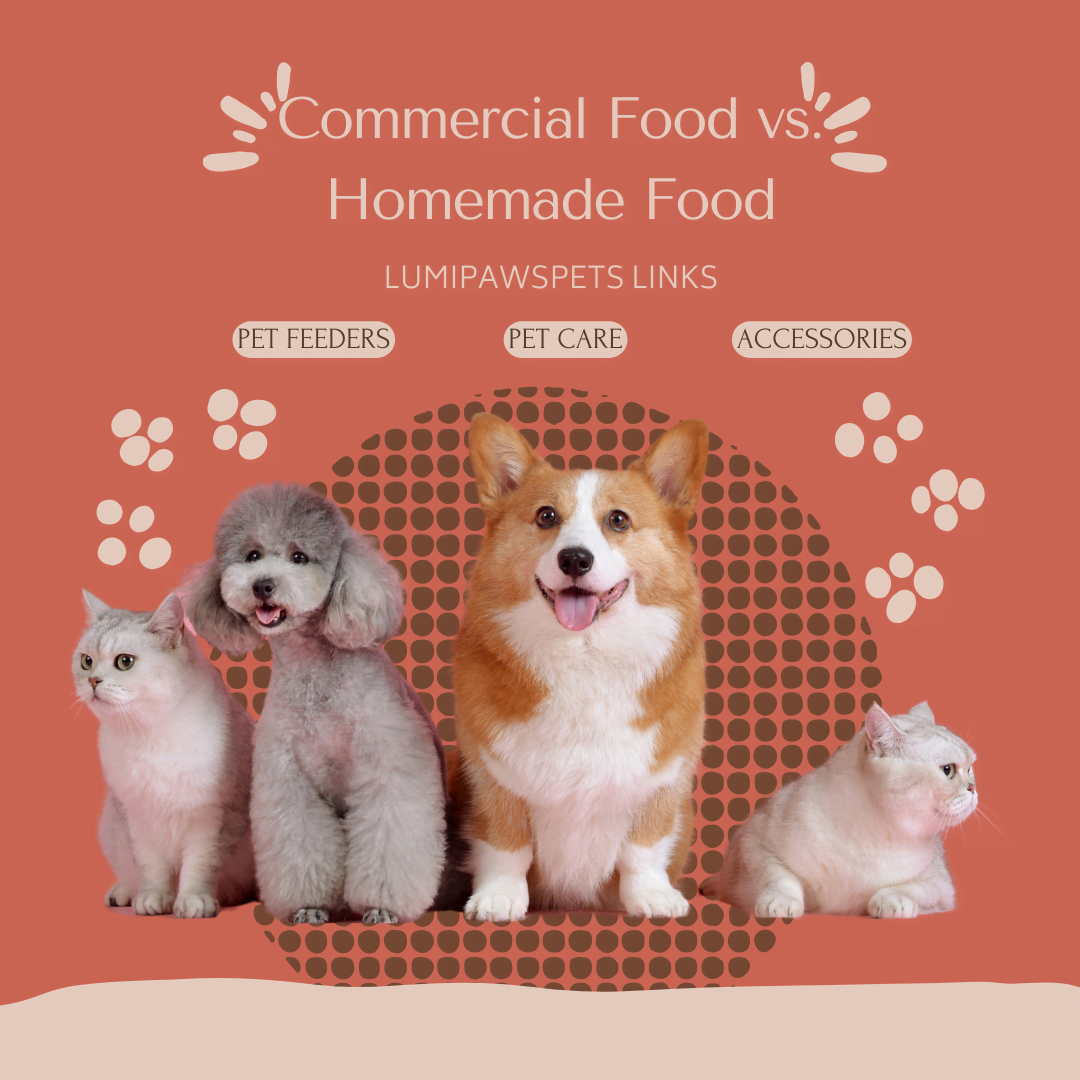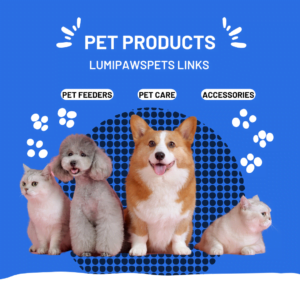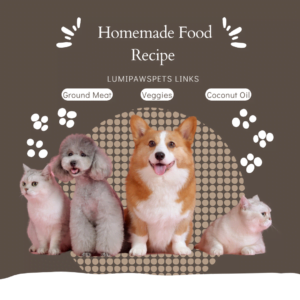As a fellow pet owner (not a veterinarian), I try to reduce feeding my dogs commercial pet food and treats. I know it is convenient, but many of them are full of chemicals and can make our pets sick. If you are thinking about preparing homemade pet meals, consult a pet nutritionist for personalized recipes. Remember, each pet is unique!
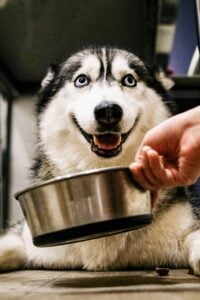

1. Commercial Pet Food: Convenience vs. Quality
The Convenience Factor
Commercial pet food is unquestionably convenient. It comes in neatly packaged bags or cans, ready to serve. For busy pet owners, this ease of use is a blessing. However, convenience does not always mean it is the best choice.
The Chemical Conundrum
Unfortunately, some commercial pet foods contain additives, preservatives, and artificial ingredients. These chemicals can adversely affect our pets’ health, leading to allergies, digestive issues, and other health concerns. As responsible pet parents, we must scrutinize labels and choose wisely.
2. Individualized Nutrition: One Size Doesn’t Fit All
Unique Dietary Needs
Just as humans have unique dietary needs, each pet also has specific dietary requirements. Factors such as age, breed, size, and any existing health conditions play a significant role in determining these needs. While commercial pet food generally provides a balanced diet, it may not cater to the individual needs of every pet. Some pets may thrive on it, while others may struggle.
The Homemade Meal Adventure
If you are thinking about switching from commercial pet food to homemade meals, it can be a great alternative. However, it is important to proceed with caution. Making nutritious meals for your pet requires knowledge and expertise. It is not as easy as just throwing leftovers into their bowl. The meals need to be balanced and cooked; I do not recommend including raw meat in their diet.
3. The Role of Pet Nutritionists: Your Pet’s Culinary Guide
Why Consult a Pet Nutritionist?
Pet nutritionists specialize in understanding the dietary requirements of different animals. They consider factors like age, weight, activity level, and any health issues. A nutritionist can guide you in creating balanced meals that meet your pet’s nutritional needs.
Personalized Recipes
Consulting a pet nutritionist ensures that your pet receives personalized recipes tailored to its specific needs. Whether it is a senior dog with joint issues or a playful kitten, a nutritionist will recommend appropriate protein sources, vitamins, and minerals.
4. Variety and Freshness: Spice Up Your Pet’s Plate
Variety Is Key
Just like us, pets appreciate variety in their meals. Rotate different protein sources (chicken, fish, beef, turkey, lamb, etc.) to keep their taste buds excited. Introduce dog-safe fresh fruits and vegetables for added nutrients, based on your veterinarian’s advice.
Freshness Matters
Choose high-quality ingredients and avoid processed foods filled with preservatives. Fresh, nutritious ingredients are beneficial for your pet’s health and vitality.
Here are the brands I found on Amazon for human-grade treats.
Some are for cats and some are for dogs.

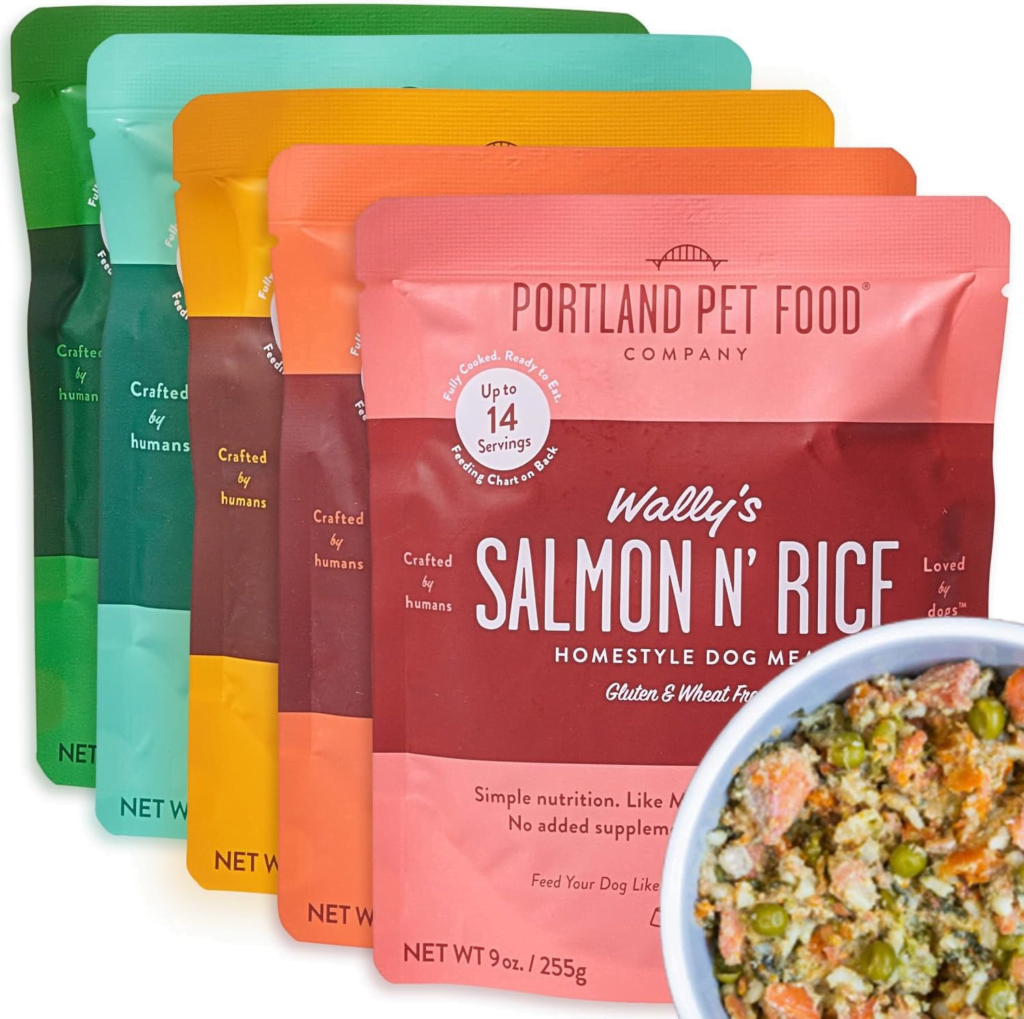
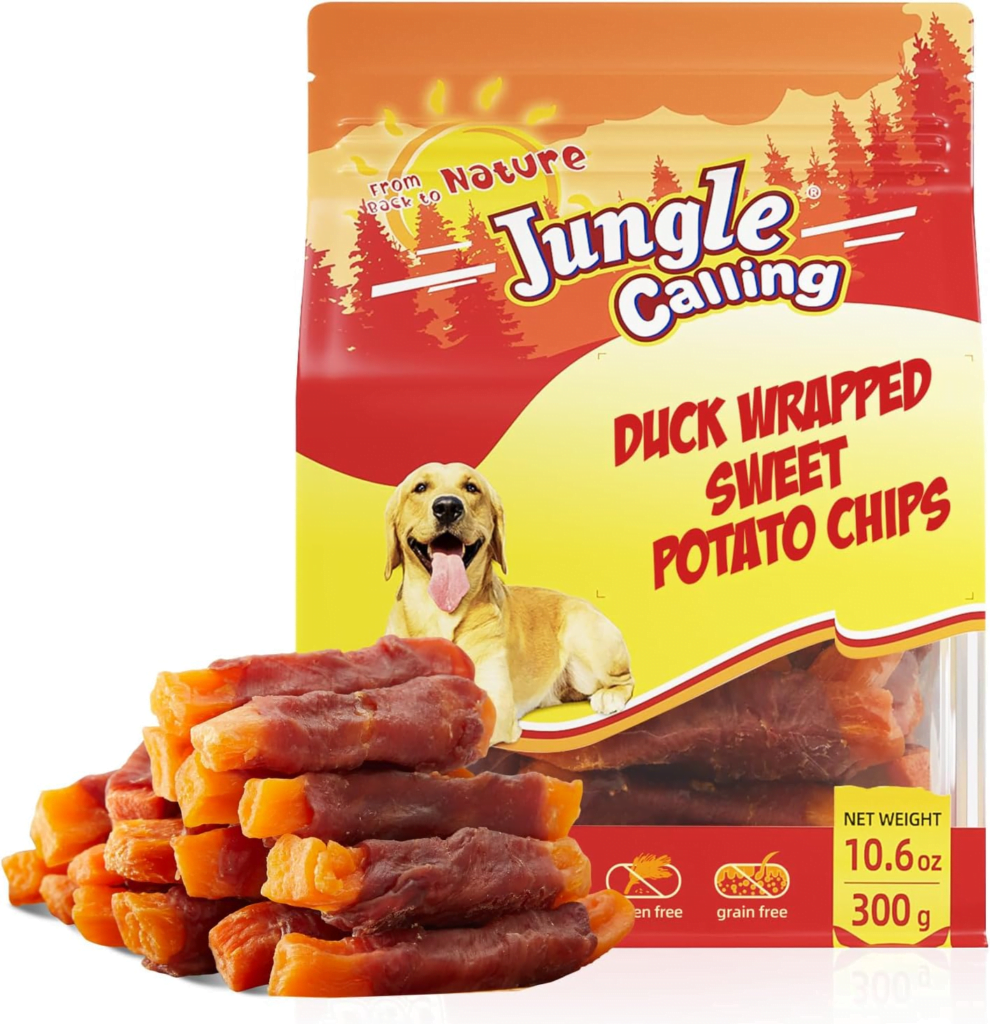
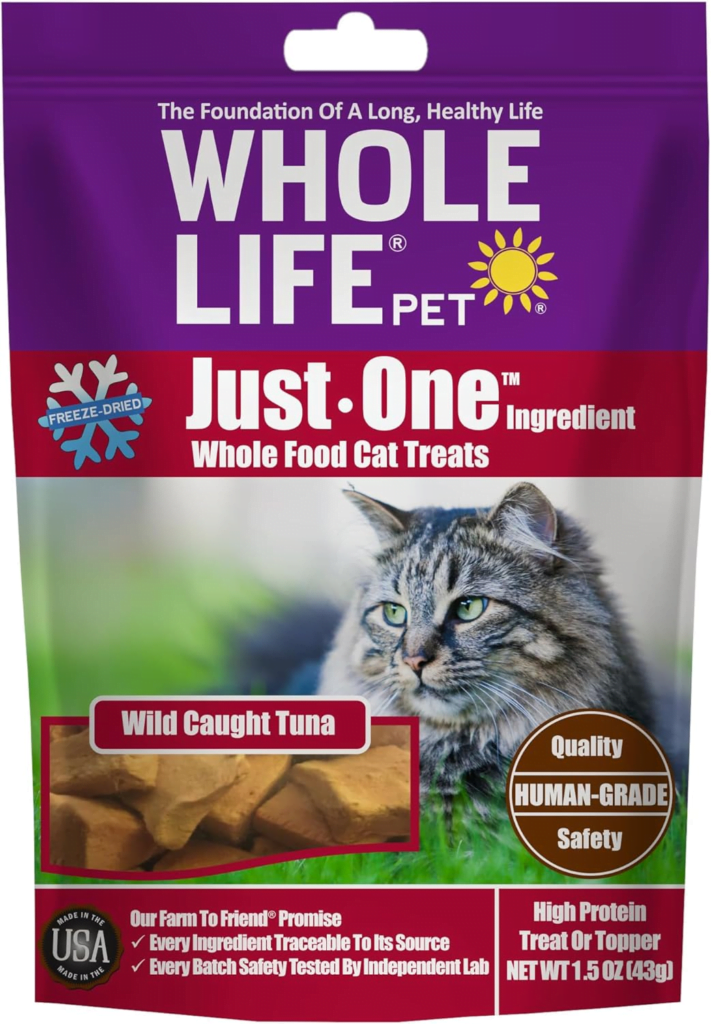
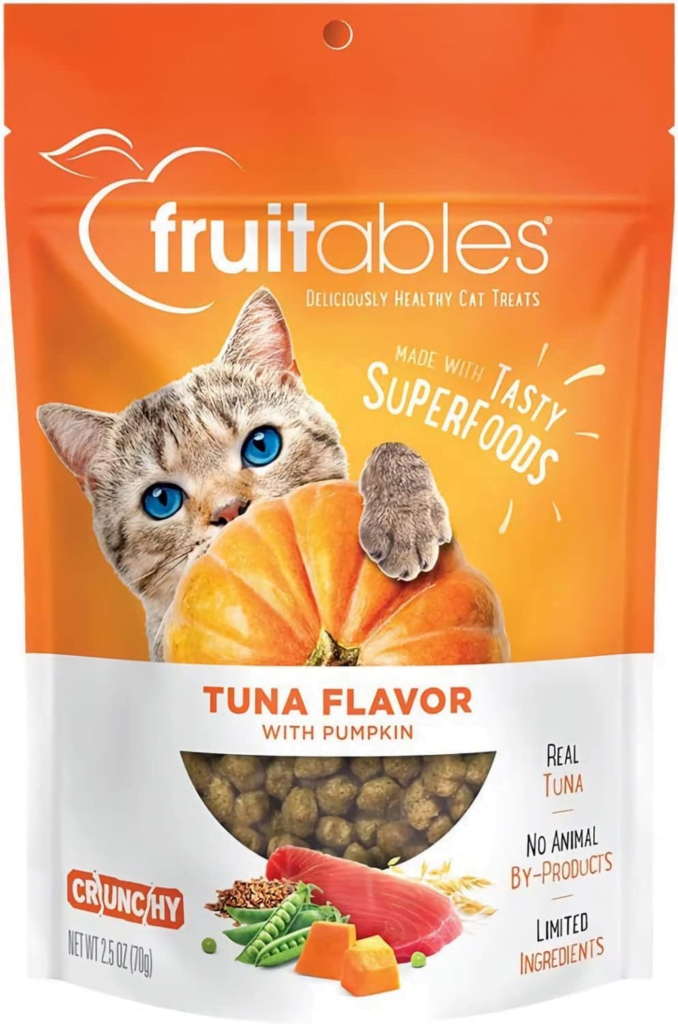
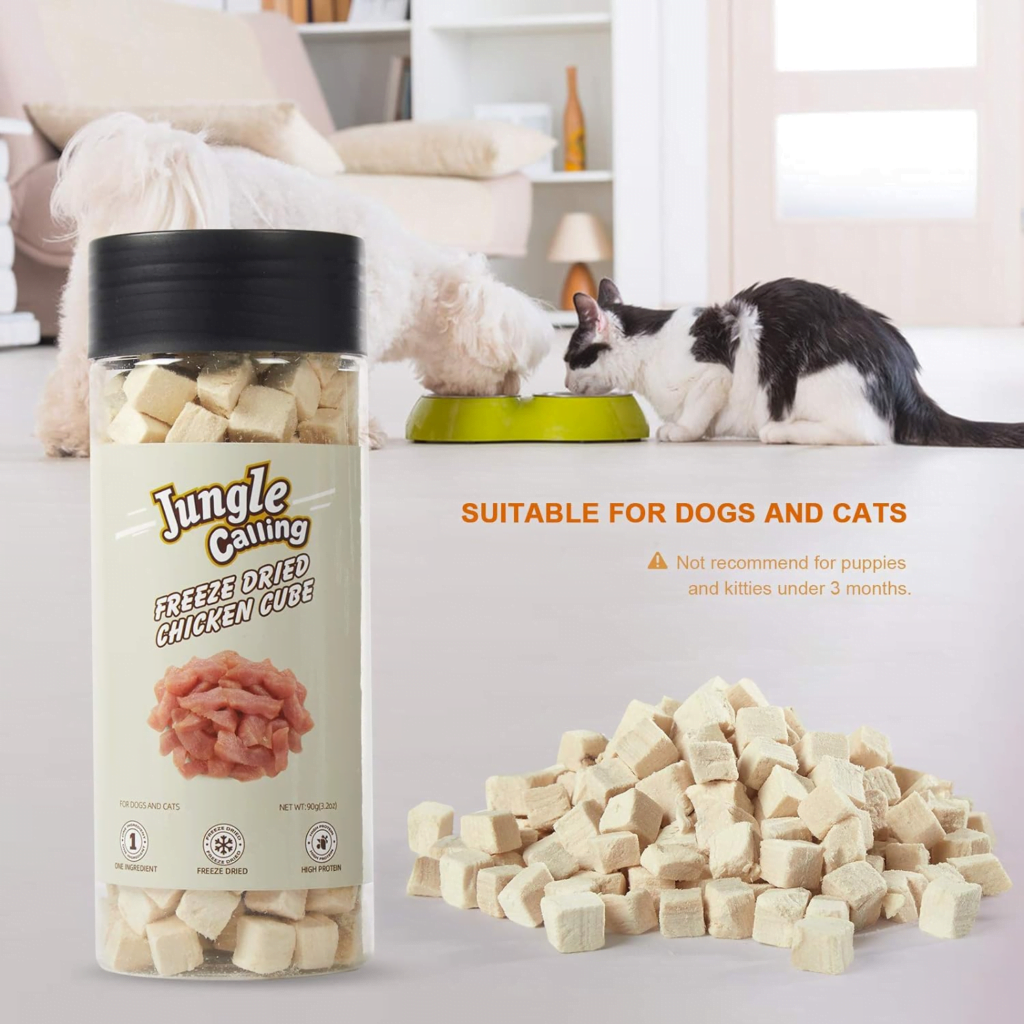
In Conclusion: Prioritize Your Furry Friend’s Well-Being
Remember, our pets depend on us to make informed choices. Whether you choose to feed them commercial pet food or try homemade meals, prioritize their health and happiness. Always consult a professional if you are unsure. Your furry friend’s well-being is worth every effort, and it can also save you on vet bills.

